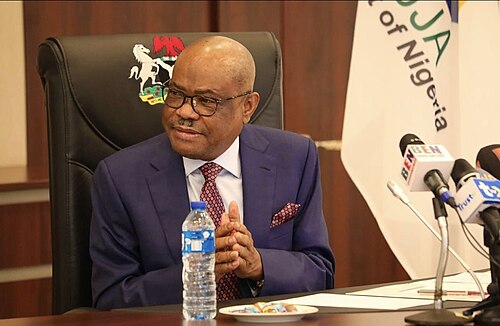The Nigerian health sector has faced numerous challenges over the years, particularly regarding the migration of its healthcare workforce to other countries. This exodus has led to a significant shortage of medical professionals, undermining the country’s ability to provide adequate healthcare to its population. In response to this crisis, President Bola Tinubu’s administration has taken a decisive step by approving the National Policy on Health Workforce Migration, a comprehensive strategy designed to manage, harness, and reverse the trend of health worker migration from Nigeria.
The newly approved National Policy on Health Workforce Migration is a landmark initiative aimed at addressing the critical challenges facing Nigeria’s health human resources. The policy was developed in response to the alarming rate at which Nigerian healthcare professionals, including doctors, nurses, pharmacists, and other medical staff, are leaving the country for better opportunities abroad. According to the World Health Organization (WHO), Nigeria ranks among the 37 countries with critical health workforce shortages. The WHO’s Health Workforce Support and Safeguards list highlights that Nigeria has only 0.363 medical doctors per 1,000 people, a figure far below the WHO’s recommended threshold of 4.45 healthcare workers per 1,000 people for adequate health coverage.
This shortage has dire implications for Nigeria’s ability to achieve the Sustainable Development Goals (SDGs), particularly SDG 3, which aims to ensure healthy lives and promote well-being for all at all ages. The Federal Government recognizes that without a sufficient number of healthcare workers, it is impossible to provide the level of care necessary to meet the needs of the Nigerian population. The new policy is, therefore, a critical component of the government’s broader strategy to revitalize the health sector and ensure that all Nigerians have access to quality healthcare.
At the heart of the National Policy on Health Workforce Migration is the goal to not only manage the ongoing exodus of healthcare professionals but also to harness the expertise of those who have already left the country. The policy seeks to create a framework that allows Nigeria to benefit from the skills and knowledge of its diaspora health professionals while also addressing the root causes of migration by improving the conditions for those who remain in the country.
One of the key components of the policy is the establishment of streamlined registration processes and attractive incentives for healthcare professionals in the diaspora who wish to return to Nigeria. By making it easier for these professionals to reintegrate into the Nigerian healthcare system, the government hopes to bridge the gaps in the sector and improve the overall quality of care. The policy also champions the creation of reciprocal agreements with other nations, ensuring that the exchange of health workers benefits Nigeria. These bilateral and multilateral agreements are designed to protect national interests while respecting the rights and aspirations of healthcare professionals.
The policy further emphasizes the importance of supporting healthcare workers through provisions for routine health checks, mental well-being support, and reasonable working hours, particularly for younger doctors. These measures are intended to create a supportive work environment that reduces burnout and enhances job satisfaction, ultimately leading to better patient outcomes and a more resilient healthcare system.
Another critical aspect of the policy is the emphasis on data collection and reporting. The Federal Ministry of Health has been tasked with routinely collecting data on health workforce migration to inform decision-making and evidence-based planning. This data will include information on vacancies, remittances from migrant health workers, and the state of Nigerian health workers in their destination countries. All health regulatory bodies, health facilities, relevant agencies, and foreign countries or their representative organizations are required to report and share data on health workforce migration with the Federal Ministry of Health on a quarterly basis.

This systematic collection of data will allow the government to better understand the trends, patterns, and impact of health workforce migration and to develop targeted interventions to address the challenges identified. For instance, if the data reveals that a significant number of doctors are leaving Nigeria for a particular country, the government can explore the possibility of a reciprocal agreement with that country to ensure that Nigeria is compensated for the loss of its healthcare workers.
While the new policy focuses on managing and reversing health worker migration, it also seeks to address the root causes that drive professionals to leave Nigeria in the first place. These causes include inadequate equipment, worsening insecurity, poor working conditions, and low salaries. Many Nigerian healthcare workers feel that they are unable to provide the level of care they are capable of due to these systemic issues. As a result, they seek opportunities in other countries where they can work in better-equipped facilities, earn higher salaries, and enjoy a safer and more supportive work environment.
The policy recognizes that addressing these root causes is essential to retaining healthcare workers in Nigeria. To this end, it includes provisions for regular reviews of working conditions, particularly in rural and underserved areas. The goal is to ensure that all healthcare workers receive the recognition and rewards they deserve, making it more attractive for them to remain in the country. Additionally, the policy advocates for the expansion of health education and training programs to increase the number of healthcare workers available to meet the needs of the population.
The migration of healthcare workers from Nigeria has had a profound impact on the country’s healthcare system. The loss of skilled professionals has led to longer waiting times, reduced patient-to-provider ratios, limited access to specialized care, and decreased quality of healthcare services. This, in turn, has weakened the healthcare system’s ability to respond to public health challenges and perpetuated the cycle of workforce shortages by reducing investment in health education and training.
Data collected from regulatory bodies indicates the magnitude and trend of migration among different cadres of health workers. For example, in 2022, over 3,000 doctors requested letters of good standing from the Medical Dental Council of Nigeria (MDCN) to facilitate their migration. The United Kingdom was the destination for 68% of these medical and dental professionals, with other countries such as Canada, the United States, and the United Arab Emirates also attracting significant numbers of Nigerian healthcare workers.
The Nursing and Midwifery Council of Nigeria (NMCN) reported a similar trend, with 52% of nurses and midwives who requested verification to migrate choosing the United Kingdom as their new home. Other health worker cadres, including medical laboratory scientists, pharmacists, optometrists, and physiotherapists, have also seen significant numbers of professionals leaving Nigeria for better opportunities abroad.
This trend has raised concerns about the long-term sustainability of Nigeria’s healthcare system. If the current rate of migration continues, the country may struggle to provide even basic healthcare services, particularly in rural and underserved areas. The new policy seeks to reverse this trend by creating an environment in which healthcare professionals are valued, supported, and motivated to stay in Nigeria and contribute to the development of the health sector.
International collaboration and health diplomacy are central to the success of the National Policy on Health Workforce Migration. The policy calls for recipient countries to implement a 1:1 match, training one worker to replace every publicly trained Nigerian worker they receive. This approach not only helps to mitigate the impact of migration on Nigeria’s healthcare system but also promotes ethical recruitment practices that respect the rights and aspirations of healthcare professionals.
The policy also encourages collaboration with other countries to expand health education and training programs in Nigeria. By increasing the number of healthcare workers trained in Nigeria, the government hopes to reduce the strain on the health system caused by migration and ensure that there are enough professionals to meet the needs of the population.

Prof. Pate, in his discussions on the policy, emphasized that Nigerian healthcare workers are highly sought after globally, particularly in countries like the United Kingdom, where 67% of Nigerian doctors currently practice. He noted that if Nigerian health workers were to withdraw from the National Health Service (NHS) in the UK, the system would struggle to provide the services that many Nigerians seek there. This highlights the value of Nigerian healthcare professionals and underscores the importance of developing policies that both retain talent within the country and leverage the expertise of those who have already migrated.
Conclusion
The National Policy on Health Workforce Migration represents a significant step forward in addressing the challenges facing Nigeria’s healthcare sector. By focusing on both the management of existing migration trends and the underlying factors that drive professionals to leave the country, the policy offers a comprehensive strategy for revitalizing the health sector and ensuring that all Nigerians have access to quality healthcare.
Under President Bola Tinubu’s leadership, this policy is expected to catalyze the transformation of Nigeria’s healthcare system, making it more resilient, robust, and capable of meeting the needs of the population. As the policy is implemented, it will be essential for all stakeholders, including the government, healthcare professionals, and international partners, to work together to build a healthcare system that reflects Nigeria’s potential and promise.
SOURCES
- https://www.google.com/amp/s/punchng.com/fg-to-make-public-remittances-from-migrated-health-workers/%3famp
- https://www.thisdaylive.com/index.php/2024/08/14/with-new-national-policy-on-health-workforce-migration-fg-seeks-to-reverse-brain-drain/
- https://www.channelstv.com/2024/08/14/how-new-health-policy-will-help-bring-back-nigerian-doctors-from-diaspora-minister/




